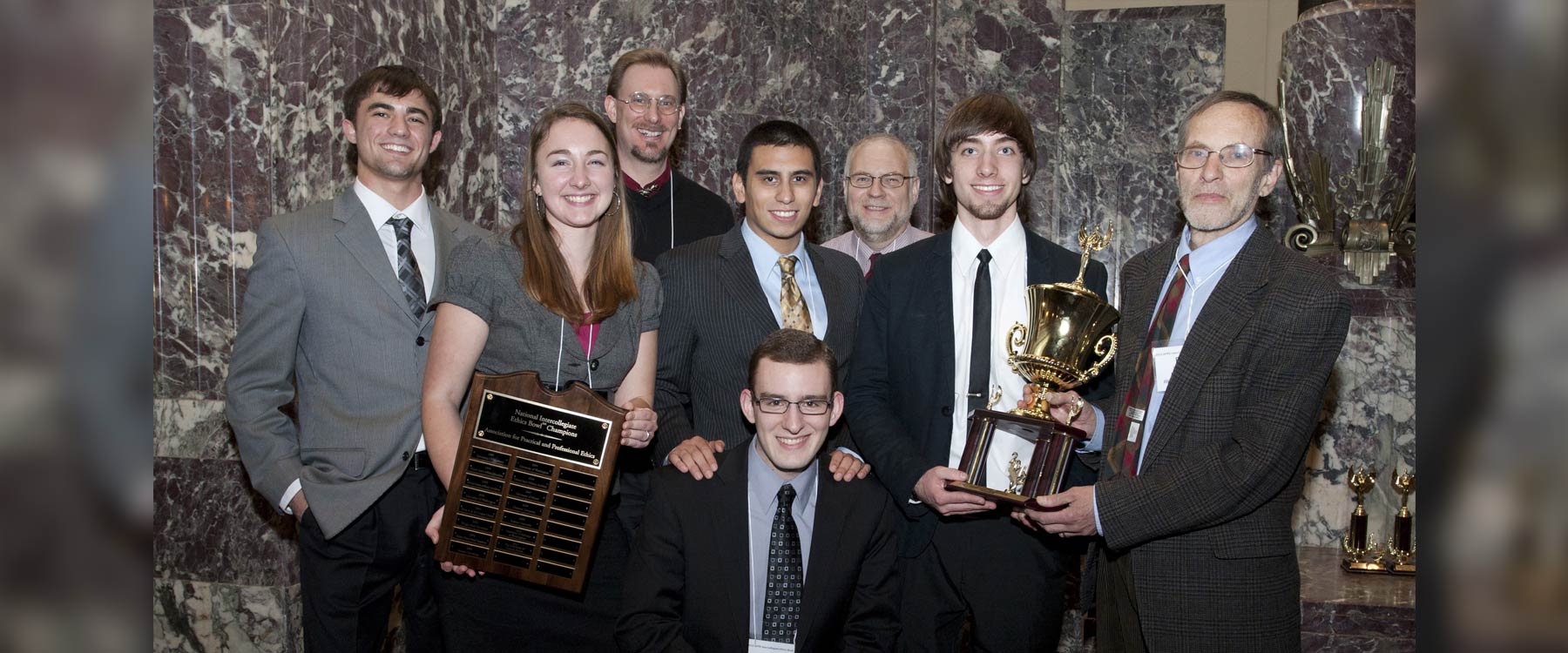Ethics Bowl
Each year Whitworth fields a five-student Ethics Bowl team that competes against other colleges and universities at the Northwest Regional Ethics Bowl in Seattle. The top teams from the NREB qualify for the Intercollegiate Ethics Bowl, held each spring. The IEB is the national championship bowl and it is sponsored by the Association for Practical and Professional Ethics. Each spring Whitworth competes in the Independent Colleges of Washington’s Ethics Bowl in Seattle.
Join the Team
Whitworth's interdisciplinary team comprises top students who have taken an ethics class and who are able to apply ethical theories in complex contexts. The team members have come from all class standings (freshman-senior) and from a wide range of majors, including chemistry, communication studies, English, philosophy, political science, psychology and theology. The team meets weekly for practice sessions and coaching by Whitworth faculty members. Individual students conduct research on assigned cases, and the team works together to develop skills in critical and analytical thinking, clear reasoning and public speaking.
In advance of each competition, Whitworth's team receives a set of ethical issues that they have about seven weeks to research, identify key principles, and apply ethical theory. In 2017 the team researched and analyzed 39 cases across three bowls on a wide variety of topics. Some of the cases included whether the FBI could compel Apple to unlock cell phones, significantly tax beef to dissuade people from eating it for reasons concerning health and climate change, creating boundaries between freedom of expression and "political correctness," proposing regulations on using three dimensional printers to print handguns, requiring the United States Army to alter its requirements on solider uniforms to allow Sikhs to wear a beard while in service, the use of drones in the war on terror and whether there should be limits to business compensation packages for senior executives.
Think Critically
At bowls, a moderator poses a question to each team that is drawn from the cases the team has researched. The team confers for one minute and then presents a coherent answer to the question, demonstrating skills in policy analysis and ethical understanding. A panel of judges, who are typically ethics professors and ethics officers and practitioners with large organizations, rates each team's answer on the following criteria: intelligibility, focus on ethically relevant considerations, avoidance of ethical irrelevance, and deliberative thoughtfulness.
Thinking critically about the world is an essential part of engaging with it. Ethics Bowl helps you to do that.
- Kelly Vincent Weirich '09, Philosophy Major
